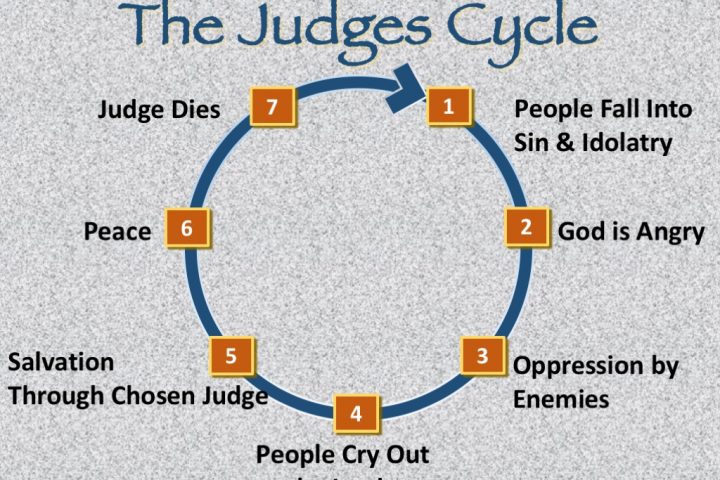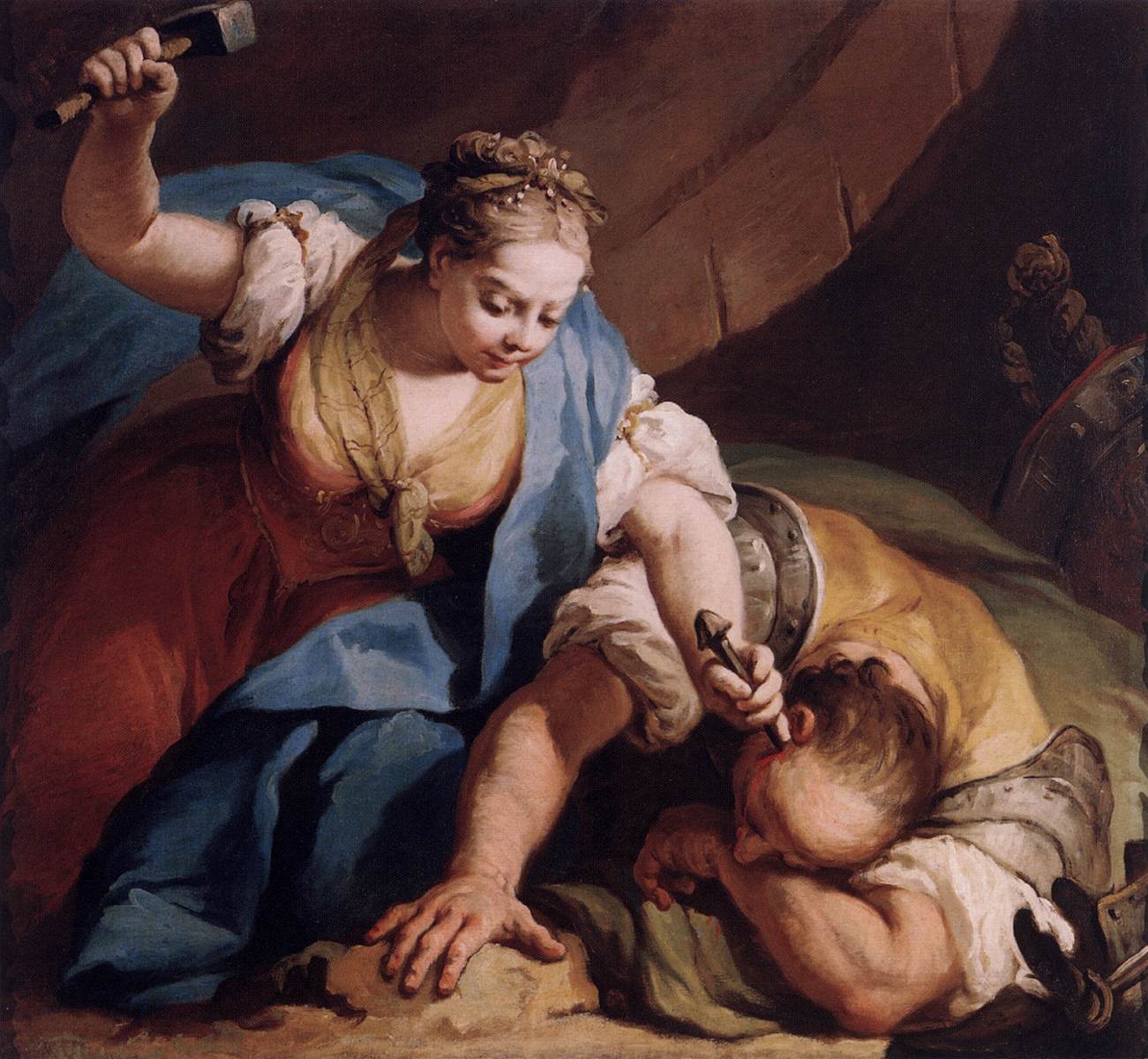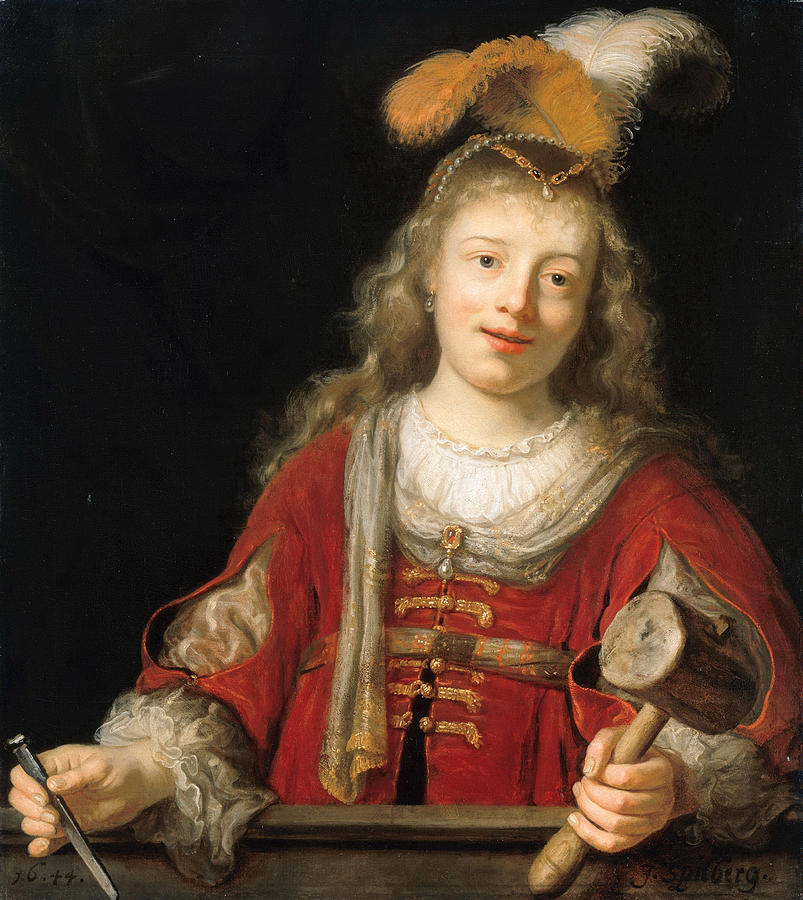
Now dares come in three degrees of importance. There is the plain “I dare you.” This dare does not meet the challenge of immediate action. It can be easily dismissed with a casual “I’m not afraid to talk to Dottie. It is just that I have to spit in my baseball glove and loosen up the pocket right now.” If the darer doesn’t swallow that excuse, then he raises the ante by moving up to the second degree dare. That is the “double dare you” dare. Dickie smelled blood on that warm autumn day and upped the ante with a double dare. I was taken aback. I didn’t think that Dickie, being my best friend and all, would risk that friendship by double daring me. The double dare requires a carefully thought out reason for not accepting the double dare challenge that would be acceptable to Dickie and all of my friends standing around us. I blinked and confessed that a turned ankle sustained earlier during recess, made the walk over to Dottie too painful. To illustrate the delicate condition of my ankle, I limped around Dickie nearly falling to my knees at one point. I smiled behind my hand at the brilliance of my response.
Dickie wasn’t deterred. He knew victory was within his grasp. He then threw all caution to the winds and spoke the dare that was only whispered in polite society - the triple dare. This dare was so rare that I had only heard it given once before. And that dealt with requiring Tommy Lovitt to put a frog in our teacher’s, Mrs. Decker, desk drawer. The triple dare left no room for excuses. It was put up or shut up. What was on the line was my very manhood. I sucked up all of my courage I could muster and with sweat running down my forehead, I walked over to Dottie and stuttered, “Hi, D-D-Dottie” and then ran as far from her as the fence on 28th street allowed me. The triple dare had been answered as my friends looked on in awe and admiration..
In today’s study, there are a lot of dares given. One even might have reached the level of a triple dare.
Judges 4:4 At that time Deborah, a prophetess, wife of Lappidoth, was judging Israel. 5 She used to sit under the palm of Deborah between Ramah and Bethel in the hill country of Ephraim; and the Israelites came up to her for judgment.
Last week we talked about how the Israelites got into this cycle of going after other gods, God withholding his protection, Israel being invaded by a neighbor, Israel crying to God and God bailing them out by sending a judge to defeat the neighboring nation. Also, last week I said that these judges weren’t the kind of judges we usually think about. Generally, these judges were people God used to win battles - not sit in a court room and decide who was right and wrong.Up to this point, there had been two judges, The first was a man named Othniel who was the nephew of Caleb. Who was Caleb? Remember he and Joshua had scouted out Canaan and contrary to the ten other scouts, said that, with God’s help, Israel could defeat the nations in Canaan. Othniel led Israel in a war with King Kushan. The victory resulted in forty years of peace. Othniel dies and the Israelites go back to their old ways meaning what? Back to Idol worship.
The Israelites were attacked by Eglon, the king of Moab, who oppressed them for eighteen years. Israel, in demonstrating against Eglan’s oppression, took a knee and God sent Ehud as judge. Ehud went to Eglon with a financial gift. He whispered in Eglon’s ear that he had a top secret to tell him. It came directly from God. Eglon clears the room. When Eglon leans over to hear the secret, Ehud plunges a short sword into Eglon’s belly rupturing his bowls. Ehud left and locked the door. When Eglon’s staff returned, they thought the locked door meant that the king was relieving himself, so they waited for him to finish. By the time the staff figured out something was wrong and kicked down the door, Ehud was long gone.
The first verse of Chapter 4 starts with a statement that after the death of Ehud, the people of Israel changed. What did they return to? They chased after other gods again. Now there was a king in Canaan then named Jabin who had his capital in a city named Hazor. This guy was a pretty evil king and some the land that he controlled was within the borders of the land claimed by the Israelites. He had a big army which included 900 iron chariots. To give you an idea of the military power of Jabin, when the Israelites fled Egypt, the Pharaoh’s army that chased them had only six hundred iron chariots. With this powerful army, Jabin easily oppressed not only the Israelites but his own subjects in Canaan. He had a good commander in charge of his army named Sisera. Sisera was probably a prince in the kingdom.
There was no love lost between Jabin and Israel and he took every opportunity to harass Israel and he knew he could get away with it because everybody was afraid of his army. The people of Israel were at the start of another one of their worshiping idol cycles and God had withdrawn his protection. So, Jabin took advantage of God being gone and made life miserable for the Israelites for about twenty years. And the people resorted to type and cried to God for help.
Who does God pick as a judge? Deborah. She was so wise that people would come to her from all over to settle disputes. Where does she hold court? She would sit under a palm tree and consider the arguments presented and then decide what was fair. In addition to her duties as judge, she was also a what? A prophetess. What was the job of a prophet? To tell people what God wanted them to know. This meant that her decisions were ones that probably had God’s input. Did you know that she was one of only three women named as prophets in scripture?
Deborah was an unusual choice for judge mainly because she was a woman and not a military leader. In those days women weren’t in the leadership. That position was reserved for men. In fact women and children were considered the property of the husband and father. Later on in Rome, even the male children were considered as property and could be given away or dealt with as the father saw fit. It was only when the boy became a man, that he would be free from his father’s control. As hard as it is to believe, sons in a Roman home usually weren’t considered as very important. In fact a lot of times they weren’t even given an individual name but were given a number as a name. When we see movies about Rome, it seems like all of the men have names like Quintus, Sextus and Octavious. All of these are names for the numbers - five, six and eight.
So that was what was going on when God appointed her as a judge. Aren’t you glad these traditions are no longer in vogue? I mean about a woman being the property of men. Not in vogue? Really? When a woman marries a man, she usually loses her family name and assumes the family name of her husband. In the marriage ceremony itself the minister will ask who gives this woman in marriage and it is usually the father or some male member of the family. These all go back to the time when women were considered property and the father was transferring ownership of her to another man just as he would a horse or cow.
We know from scripture that Deborah was a person who dispensed justice and did a good job at it. Even though she was a woman, she was nobody’s property. She was a leader and the people recognized that ability in her. And she was as capable as any man in handling the stresses and problems that came with being a leader. If this was not so, God wouldn’t have picked her to be a judge. So while the society she lived in might have relegated her to a lower status because she was a woman, God picked leaders regardless of society’s status or gender.
Who was Deborah’s husband? A guy named Lappidoth. This might not mean that she actually had a husband named Lappidoth. Lappidoth means “torch” and some think that translation of the phrase really meant that Deborah was a “woman of torches.” That could refer to her leadership skills since the leader in a group would carry the torch. Also, a torch lights up the darkness revealing what was unseen. This might refer to Deborah’s ability to find answers to difficult questions.
Judges 4:6 She sent and summoned Barak son of Abinoam from Kedesh in Naphtali, and said to him, "The LORD, the God of Israel, commands you, 'Go, take position at Mount Tabor, bringing ten thousand from the tribe of Naphtali and the tribe of Zebulun. 7 I will draw out Sisera, the general of Jabin's army, to meet you by the Wadi Kishon with his chariots and his troops; and I will give him into your hand."
Who does Deborah send for? Barak. I’ll bet you feel that he was at loose ends since he was no longer President. Wrong Barak. She calls Barak to do what? Lead an army. The name Barak really means “lightening” probably describing a man who displays bursts of energy. She tells Barak that he will have a rag tag army to go up against one of the most powerful armies in the area. How does Barak react? “Are you crazy. You expect me to go up against Sisera with his nine hundred iron chariots with an Israelite army that doesn’t even have shields and only a few swords.” To be fair to Barak, it would be like an army in our day equipped with pea shooters going up against an army led by tanks. It is left up to Deborah to push Barak into accepting this assignment. Since Deborah was a “woman of torches”, you might say that she is going to build a fire under Barak.
Deborah tells Barak her battle plan. Where will he get his army? 10,000 men from the tribes of Naphtali and Zebulun. It’s interesting that only two of the twelve tribes will contribute men to the army. The other tribes will sit this battle out. Actually, it made sense because the tribes of Naphtali and Zebulun bordered the field where the battle will take place. According to Chapter 5, these men have no military equipment. What is Deborah’s plan? She will draw Sisera out on a plain bordering a river named Kishon. Then she said, as if that was all there was to it, Barak and his army would defeat Sisera’s army. It would seem easier said than done. But, that would be leaving out God.
Judges 4:8 Barak said to her, "If you will go with me, I will go; but if you will not go with me, I will not go."
Barak listened. But there seemed to be something missing between drawing out Sisera and defeating Sisera. Like how was this defeat going to be possible given the power of Sisera’s army and the weakness of the Israelites? He then strikes a bargain with Deborah, “I triple dare you to go with me into battle. I’ll go and get my head shot off if you go and get your’s shot off, too.” What was Barak’s motive for challenging Deborah? Was he saying, “Put your money where your mouth is?” Was he hoping that by challenging her, she will realize that the odds of winning were somewhere between pretty slim and zero? Was he saying, “When you get a better plan, let me know?” I believe that Barak recognized that she was someone special who God had picked and it might be a good idea to have her close by to let him know if God had more instructions for him.
Judges 4:9 And she said, "I will surely go with you; nevertheless, the road on which you are going will not lead to your glory, for the LORD will sell Sisera into the hand of a woman." Then Deborah got up and went with Barak to Kedesh. 10 Barak summoned Zebulun and Naphtali to Kedesh; and ten thousand warriors went up behind him; and Deborah went up with him....
Does Deborah agree to go? Yep. I think that Barak was the most surprised guy in the world when Deborah agreed to join him at the front of the rag tag army. She warns Barak that there will be a victory for Israel, but, he won’t get the credit. The credit for bringing down Sisera would go to a woman. Deborah took Barak up on his dare so everything was ready. Barak assembled his army and he and Debrorah led them toward Sisera’s troops. Will Deborah be the woman who will get the credit for the Israelite victory? Stay tuned. Same Barak time. Same Barak channel.
Judges 4:12 When Sisera was told that Barak son of Abinoam had gone up to Mount Tabor, 13 Sisera called out all his chariots, nine hundred chariots of iron, and all the troops who were with him, from Harosheth-ha-goiim to the Wadi Kishon. 14 Then Deborah said to Barak, "Up! For this is the day on which the LORD has given Sisera into your hand. The LORD is indeed going out before you." So Barak went down from Mount Tabor with ten thousand warriors following him. 15 And the LORD threw Sisera and all his chariots and all his army into a panic before Barak; Sisera got down from his chariot and fled away on foot, 16 while Barak pursued the chariots and the army to Harosheth-ha-goiim. All the army of Sisera fell by the sword; no one was left.
For Sisera, it was just another ordinary day. No war to fight which meant no bounty to collect. Just a lazy day laying around eating tacos and drinking tequila. That quiet day ended when he got word that the Israelites had amassed an army and were leaving the security of their mountain fortifications to meet him on the plain by the River Kishon. He put on his armor and had his chariot rolled in. He climbed into his chariot and led his powerful army out onto the field. Across the plain he could see the ten thousand Israelites running down the mountain. He laughed as he noted that they only had sticks and rocks. Where were their shields and swords? He assembled his chariots ready to make a dash right into the center of the Israelite army.There are no details about what happened next. We don’t know how the Israelites were able to overcome such tremendous odds and route Sisera’s army. In Chapter 5 we are only told that there was an on rushing torrent of water in the River Kishon. Here is what may have happened. There was a flash flood and the banks of the Kishon overflowed causing the plain to be covered with water. The strength of the chariots was in their ability to move faster than the men on foot. The chariots could tear through the opposing army inflicting casualties without the foot soldiers being able to stop the chariots or even strike at the soldiers in the chariots. Generally, this allowed the chariots to get behind the foot soldiers, cutting off their retreat and then turn and decimate the army as it was pinched between the chariots on the rear and the rest of Sisera’s foot soldiers in front of them.
 When the plain was covered with water, the ground became a quagmire leaving the horses unable to pull the chariots. Now the chariots were sitting ducks. It was like the tanks in the First World War in Flanders that bogged down in the mud and were easily destroyed. Each man in the bogged down chariot faced about 11 screaming men pelting them with stones and sticking them with wooden spears. I would imagine as the Israelites destroyed a chariot, they took the swords from the dead Canaanite soldiers and used them against the rest of the charioteers. It is a complete victory for the Israelites. Does this mean that Deborah is the woman who gets all of the credit? Not yet.
When the plain was covered with water, the ground became a quagmire leaving the horses unable to pull the chariots. Now the chariots were sitting ducks. It was like the tanks in the First World War in Flanders that bogged down in the mud and were easily destroyed. Each man in the bogged down chariot faced about 11 screaming men pelting them with stones and sticking them with wooden spears. I would imagine as the Israelites destroyed a chariot, they took the swords from the dead Canaanite soldiers and used them against the rest of the charioteers. It is a complete victory for the Israelites. Does this mean that Deborah is the woman who gets all of the credit? Not yet.
Sisera, when he saw that the Israelites were killing anybody sitting in a chariot, jumped out of his chariot and started to running for his life. In fact he was running in the opposite direction from where his army was being slaughtered. He comes upon the tent of a man named Heber. We are told that Heber was a Kenite and was a descendant of Moses’ father-in-law. Heber was away and only his wife Jael was at home. Now Heber and King Jabin were on good terms so Sisera felt that it was safe to approach Heber’s tent. Jael welcomed him and assured him that he will be safe in the tent. He asks for some water but instead she pours him some milk and a prepares a light meal of curds for him. She tells him he looks tired and to lay down. When he does, she places a blanket over him. Sisera tells her that if anybody come looking for a man she is to say that she hasn’t seen any men all day. Jael promises not to tell anyone that he is in the tent.
Assured of his safety, Sisera snuggles down into his blanket. As he closes his eyes he thinks about how lucky he was to come upon Heber’s wife. She had treated like a member of the family. When this is all over and he gets back home, he’ll have to send her a present for treating him so well. He closed his eyes and settled into a deep sleep letting the weariness of his body slowly fade. He didn’t hear Jael as she quietly walked toward him. He didn’t feel her as she knelt beside him and placed something on his temple. Then with the other hand she crashed down the hammer and drove a tent spike through his temple. She kept pounding and pounding until the spike went all of the way through his head, exited the other side of his head and drove down into the ground.I would say that this was a case of really picking bad friends. With a friend like Jael, who needs enemies. Why would Jael do something like this? After all, her husband and Sisera must have known each other and they got along. If you really look at her actions, you have to concede that she was a bit devious. She acted like he could depend on her while all the time plotting to kill him. At the very least, she violated all of the rules for being hospitable. In that day being hospitable was a sacred duty. Her husband and Sisera weren’t at war so she couldn’t use the excuse that he was an enemy soldier. Besides, Sisera had sought safety in her home and she had granted it. But, the minute he went to sleep she killed him. Do you think Jael did right in killing Sisera?
Before we condemn Jael, lets look at the other side of the coin. Sisera violated the rules of hospitality by approaching Jael when her husband wasn’t home. Being alone with another man’s wife insulted the man and dishonored the wife. Also, he expected her to lie for him which put her life in danger. Look at what Jael faced. She was home alone and Sisera really invited himself in. She really didn’t have much choice. In that sense, Sisera actually invaded the home of a helpless woman. Further, Sisera was a soldier and had a reputation for bringing women of conquered nations back home to be concubines for his soldiers. There was a real danger to Jael that when he awoke rested, he would violate her. From this vantage point, Jael was acting as a desperate housewife forced to act against a man who probably would take advantage of her.
When Barak approaches her Tent, Jael tells him that she has the man he is looking for and leads him into the tent. There laying on the floor in a pool of his own blood with his head nailed to the floor is Sisera. As Paul Harvey used to say, “Now I can tell you the rest of the story.” It wasn’t Deborah who would get credit for getting rid of Sisera. It would be Jael, a little known housewife living in a tent, but with enough courage to protect herself. Chapter 5 describes her as the most blessed of women.King Jabin will rule for another twenty years, but with his army decimated, he will no longer have control over the area. In fact Israel will emerge as a power in the region as a result of this battle. And for the next forty years, Israel will have peace.
A dare is a challenge, but, it’s affect has changed little over these twenty five centuries. Deborah responded to the triple dare by leading the Israelite army to a rousing victory over a superior army. Now, if the Israelites just dared to be all that they could be. To dare to obey and serve God and run away from other gods even as far as the fence on 28th Street.
Prayer: Father, you have given us the courage to dare to follow Jesus. Help us to be an instrument like Deborah so that we can bring in a servant like Barak to accomplish your will in our time. In the name of Christ we pray. Amen.


/Deborah-GettyImages-173449598-57068a385f9b581408ce21b8.jpg)




No comments:
Post a Comment